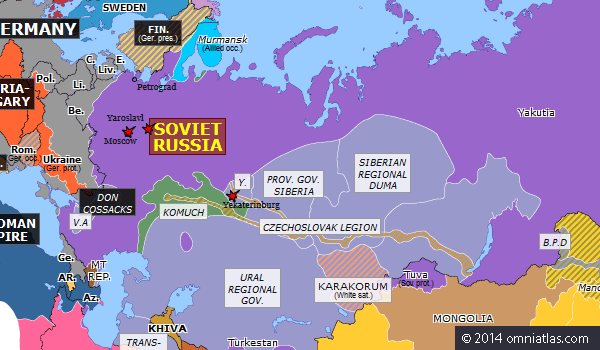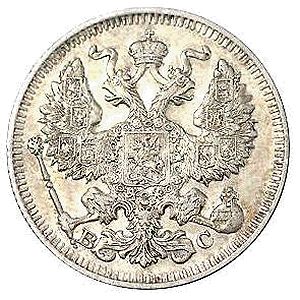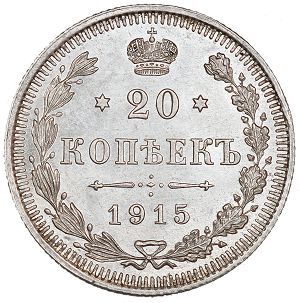Volume Two
Modern States
Paternalistic States: Russia

Tsar Nicholas II
The very qualities that would have made Nicholas II an admirable constitutional monarch — his innate sense of decorum, strong sense of duty and blameless personal life — were to prove most fatal to the tsarist cause. The Romanovs ruled through families they ennobled, and from whom they took advice, but such a system of government required the tsar to be far-sighted, politically astute, sensitive to social and economic concerns, and of strong personality. Such was Peter the Great, but Nicholas was far happier acting as paterfamilias than ruling a vast and vexing empire, about which there was still much strange and medieval outside the cities and new industrial zones. He came to the throne when his father died prematurely in October 1894, married Princess Alix of Hesse-Darmstadt (Alexandra) within the month, and became in due course the amiable father of five children. {1} Only social banalities feature in his diary entries, and indeed in no matters of an economic and/or political nature did Nicholas show much interest or understanding. The country was his to rule without laws or parliaments, guided only his conscience before God. Indeed officialdom barely reached into the countryside, where the Church and local communes retained their inveterate and often barbaric customs: wife-beating, drunkenness and floggings for trivial offences. The court, city life, the professions and industry were a world apart from the countryside, and even the aristocracy owed their lands and position to the military and administrative services they provided the tsar, making them an ineffective counterweight to autocratic rule. The educated class that had grown up in the later nineteenth century could see what was needed, but censorship was strict and political change stifled. Well-read in European thought and literature through social mobility and ready access to university education for both sexes, they lovingly depicted the countryside in paintings, novels and short stories, but attempts by such Populists to idolize and reform communities were fiercely resented by all parties.
Late Russian Empire
The nobles wanted their large estate kept unchanged. The peasants trusted only themselves. They had been emancipated from serfdom, but were still their backward, superstitious and unruly selves, forced to rent the better agrarian land from the gentry class or find work in the expanding mines and factories towns, from which they sent money home, or returned themselves at harvest time, but where they also picked up ideas made ever more extreme and subversive by government repression. {2-4}
Factory life was hard and dangerous, and more so in the many small workshops, which had even fewer safeguards. Strikes were legion, and often flared into riots, pogroms and machine-breaking rampages. Trade unions were banned until 1905, blocking democratic expression through moderate socialist parties. An intelligentsia, themselves newly emancipated from rural servitude, joined an exploited working class, and revolutionary movements smouldered beneath the surface, ready to break out with dangerous violence when disasters struck. {2-4}
And disasters came from all sides. The great famine of 1891 and the death of half a million from cholera and typhus a year later had polarized opinion badly, but Nicholas did not accede to political demands for change on his accession to the throne: quite the contrary: rule akin to his father's was his solemn duty, though he lacked Alexander's domineering personality. Relief was organized by district councils, which slowly added political influence to their philanthropic aims. Government prestige was further damaged by defeat in the 1904-5 Russo-Japanese War. When St. Petersburg crowds peacefully demonstrating for food in January 1905 were mowed down by cavalry and rifle fire the mood hardened. The middle classes were horrified. There were protests, strikes and mutinies across the country, even a mutiny of the Black Sea fleet, made famous by Eisenstein's 'Battleship Potemkin'. The more educated demanded some form of representative government, the Duma, which Nicholas had to accept, though it was largely consultative and repeatedly dissolved. {2-4}
War and Revolution
Russia was ill-prepared for W.W.I, {6-7} though Nicholas could not keep his throne without respecting his treaty obligations to Serbia. The court was rumoured to be too pro-German anyway, and the unwholesome influence of Rasputin on his wife, and through her to Nicholas himself, provided yet more scandal. The war was the turning point. After some Russian successes, the Germans rolled back the huge but ill-supplied and misdirected Russian armies, and the heavy losses were difficult to make good. Factories fell behind in supplying clothing or armaments, and many divisions had find their weapons on the battlefield. Heavy conscription led to food shortages in cities, and to long queues and mutinies when troops refused to fire on rioting crowds. In a move that damaged his prestige further, Nicholas assumed command of the army, though his previous title of colonel was largely honorary. Food queues grew longer and more threatening. Rather than quell disorder, troops fired on the police. When in February 1917 his ministers admitted that they could no longer implement his measures, or even count on the loyalty of the army, Nicholas was obliged to abdicate, which he did calmly, as though finally released from a distasteful duty. {2-4}
A Provisional Government was formed, and then a more progressive one under Alexander Kerensky. But with opportunity after opportunity for sensible dialogue and compromise wasted, the time for distant promises was over. Only immediate power would satisfy peoples brutalized by war, hunger and exploitation. Peasants had seized gentry lands, and workers had taken over factories — aided by the Red Guard, which the Bolsheviks controlled. Lenin, who had arrived at the Petrograd Finland Station in April 1917, announced his terms: an immediate peace, all power to the Soviets, and no cooperation with other parties. Many thought him unrealistic, or mad even, but the Bolsheviks gained a good showing in subsequent elections, and promptly took over Petrograd in a coup d'état. Russia broke into warring factions. Nicholas and family, already irrelevant to the country and denied exile in Britain, were executed by the Bolsheviks at Yekaterinburg in July 1918. Ahead lay vast and often catastrophic social experiments: collectivisation and the elimination of the kulak small-holding class, rapid industrialization under Stalin's ambitious five year plans and always political repression: the purges, gulags and the great terror. All could have been avoided had Nicholas risen to the occasion, but what the tsar lacked in vision and determination the Bolsheviks had in plenty. {2-4} The brutally iconoclastic twentieth century had begun.
Silver 20 Kopecks of Nicholas II
 |
| |
 | Obverse: *20* KOPECK 1913 C.P. in four lines, crown above, all within wreath. Reverse: Imperial coat-of-arms |
Even the coat of arms, which shows the imperial double-headed eagle, the escutcheon of St. George, and the arms of Astrakhan, Siberia, Georgia, Finland, Kiev-Vladimir-Novgorod, Taurica, Poland and Kazan on the wings seems less a confident display of power than something fabulously ornate, antique and vaguely preposterous. The strangely knotted double-headed eagle indeed goes back to 1472, when Ivan III assumed the heritage of the Byzantine empire after its fall to the Turks, though it was modified in the seventeenth century with the ascension of the Romanov dynasty. {5}
References and Further Reading
Need the 5 references and 2 illustration sources? Please consider the inexpensive ebook.
